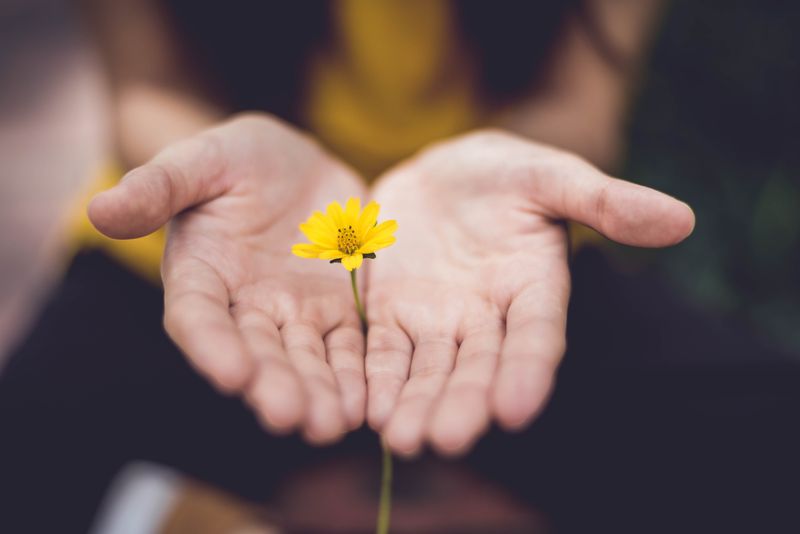There comes a moment when you realize that the love and kindness you’ve been pouring into someone doesn’t seem to matter anymore.
It’s not that you expect something in return, but the absence of mutual appreciation starts to weigh you down. Here are 18 signs that your kindness is being taken for granted by someone you cherish.
1. They expect you to forgive, but never reflect
It’s a familiar pattern: they mess up, you forgive, and nothing changes. This expectation that forgiveness comes without reflecting on their actions can be exhausting. You find yourself caught in a loop of second chances, hoping for growth that never comes.
This isn’t just about mistakes; it’s about the lack of acknowledgment that those mistakes hurt. True reflection leads to change, but without it, apologies become hollow.
You deserve someone who values your ability to forgive, not someone who sees it as a free pass to continue the same behavior. It’s crucial to communicate your feelings and set boundaries, ensuring that your kindness isn’t mistaken for endless tolerance.
2. Sorry isn’t followed by change
Apologies should be the first step towards making things better, but when they’re not accompanied by change, they lose their meaning. You find yourself hearing ‘sorry’ repeatedly, yet actions remain the same
This pattern leaves you feeling unheard and undervalued. It’s as if the apology is a formality, not a commitment to do better in the future.
It’s important to express that while you appreciate apologies, what you truly need is change. Kindness thrives in an environment where actions match words, where promises are kept, and where intentions align with behaviors.
3. You’re always the one making peace
You’ve become the glue holding things together, always smoothing over conflicts and ensuring everyone gets along. Yet, this role can be draining when you’re the only one making the effort.
Without mutual support, you might start feeling like your peacekeeping is taken for granted. It’s not about avoiding conflict; it’s about sharing the responsibility of maintaining harmony.
Consider having a conversation about how much emotional labor you’re doing. Encourage them to take an active part in resolving issues, so that your kindness doesn’t become a burden you’re carrying alone.
4. They only thank you when you’re visibly upset
Gratitude should be a consistent practice, not a reaction to your visible distress. If they only express thanks when you’re upset, it can feel like damage control rather than genuine appreciation.
You deserve recognition for your efforts, not just when it’s convenient or necessary to placate you. This lack of regular acknowledgment can make your kindness feel unnoticed.
Communicate the importance of recognizing your contributions consistently, not just in moments of tension. True gratitude is proactive, showing that your kindness is seen and valued, not merely a tool for soothing over conflicts.
5. They roll their eyes at the things you do to help
You put in effort to assist and support, but if your actions are met with eye rolls or dismissive gestures, it’s disheartening. This behavior diminishes the value of your kindness, making it feel like a thankless task.
It’s essential for your help to be appreciated, not mocked or treated with disdain. This kind of reaction can slowly erode your willingness to contribute.
Express how these gestures make you feel and discuss the importance of mutual respect. Kindness should foster a positive environment, where efforts are celebrated, not scorned.
6. You feel guilty setting even the smallest boundary
Boundaries are essential for healthy relationships, yet you find yourself hesitating to set them, fearing the repercussions. This guilt is a sign that your kindness is being leveraged against you.
When others make you feel bad for having boundaries, it’s a manipulation of your goodwill. You shouldn’t have to choose between kindness and self-respect.
It’s important to practice setting boundaries confidently, knowing that they are a crucial part of self-care. Communicate that your needs are valid and that respecting them is an expression of mutual care.
7. They assume your time is always available
Your time is valuable, yet they treat it as though it’s infinite. The assumption that you’re always available can make you feel like your schedule and commitments don’t matter.
This expectation overlooks your needs and responsibilities, placing their demands above your own. It can be overwhelming to constantly accommodate others at the expense of your plans.
Communicate that your time is precious and should be respected. Encourage them to appreciate the effort you make to be present, rather than taking it for granted.
8. They vent to you constantly—but disappear when you need support
You’re their go-to for venting, always ready with a listening ear. However, when it’s your turn to share, they vanish, leaving you feeling unsupported.
This one-sided dynamic is a sign that your kindness is being exploited. While you value being there for them, it’s crucial that the support is mutual.
Express the importance of reciprocal support in the relationship. Encourage a balance where both of you feel heard and understood, fostering a nurturing environment for your kindness to thrive.
9. They interrupt your pain to talk about theirs
When you attempt to open up and share your pain, only to be interrupted by their own stories, it can feel dismissive. This lack of empathy highlights that your experiences aren’t given the same importance.
Sharing is a two-way street, where both parties should feel valued and heard. Their interruptions can make your kindness feel like a one-way sacrifice.
Communicate the need for mutual empathy and understanding. Encourage them to listen with the same attentiveness you offer, ensuring that your kindness isn’t overshadowed by their need to be heard.
10. They never ask how you’re really doing
You’re always the one checking in, asking how they’re doing, yet the same consideration is rarely returned. This neglect can make you feel like your kindness is one-sided.
Feeling unseen can be isolating, especially when your efforts to connect aren’t reciprocated. It’s not just about kindness; it’s about valuing each other’s wellbeing.
Express how meaningful it would be for them to show genuine interest in your life. Encourage open dialogue, where both parties feel equally cared for and appreciated.
11. You overthink simple requests
Simple requests shouldn’t feel daunting, yet you find yourself overthinking even the smallest asks. This hesitation is often rooted in past experiences of resistance or dismissal.
This anxiety highlights that your kindness isn’t met with openness, making you second-guess your needs. You deserve to feel comfortable expressing yourself without fear.
Practice articulating your needs confidently, knowing that they are valid. Encourage a relationship where requests are met with understanding, ensuring that kindness is a shared value.
12. They weaponize your kindness during arguments
In arguments, your kindness becomes ammunition. Phrases like ‘You always have to be the good one’ can turn your virtues into a point of contention.
This manipulation undermines your goodwill, making your kindness feel like a burden rather than a strength. It’s crucial to protect your integrity from being twisted in disagreements.
Express the importance of respecting each other’s differences without resorting to weaponizing personal traits. Encourage a dialogue where kindness is seen as a bridge, not a barrier.
13. They don’t protect your peace—even when they know better
Your peace is precious, yet they disrupt it with little regard for your need for calm. This disregard can feel like your kindness is being exploited for their convenience.
When someone knows how to protect your peace but chooses not to, it shows a lack of respect for your emotional wellbeing. Your serenity deserves safeguarding, not neglect.
Communicate your need for tranquility and the importance of their support in maintaining it. Encourage a mutual effort to nurture a peaceful and harmonious environment.
14. They only “love” you when you’re useful
Affection that hinges on your usefulness isn’t true love. When they shower you with love only when you’re doing something for them, it feels transactional, not genuine.
This conditional affection can leave you questioning your worth beyond your contributions. Love should be unwavering, not contingent on your ability to serve.
Express the need for unconditional love and appreciation, separate from your actions. Encourage a relationship where kindness is cherished, not used as a measure of value.
15. You’ve stopped asking for help
You’ve grown accustomed to handling everything yourself because asking for help feels futile. This self-reliance stems from past experiences where your requests were ignored or dismissed.
This solitude in handling challenges can make your kindness feel like a solitary endeavor. You deserve support, just as much as you offer it.
Encourage a conversation about mutual aid, where both parties feel comfortable seeking and providing help. Reinforce the idea that kindness is a two-way street, fostering a supportive and caring relationship.
16. They mock or downplay your sensitivity
Your sensitivity is a strength, yet they treat it as a weakness, mocking or downplaying it. This behavior chips away at your self-esteem, making kindness feel like a vulnerability.
Sensitivity should be embraced and respected, not ridiculed. It adds depth to emotions and enriches relationships with empathy and understanding.
Express how these actions affect you and advocate for an environment where sensitivity is appreciated. Encourage a dialogue where emotions are honored, creating a space where kindness can flourish.
17. They assume you’ll stay—no matter what
They take your presence for granted, assuming you’ll always be there, no matter how you’re treated. This complacency overlooks your autonomy and the choice to stay or leave.
Your kindness isn’t a guarantee of permanence. Relationships require effort and appreciation, not assumptions of everlasting presence.
Communicate the importance of valuing each other’s contributions, ensuring that your kindness isn’t mistaken for an unwavering obligation. Encourage a partnership where both parties feel respected and cherished.
18. They forget how much you’ve forgiven
Forgiveness is a gift, yet they seem to forget the many times you’ve extended it. This oversight can make your kindness feel invisible, like your grace isn’t acknowledged.
Your forgiving nature deserves recognition, as it reflects strength and love. Without acknowledgment, forgiveness can feel like a cycle of unappreciated sacrifices.
Express the importance of valuing forgiveness and the role it plays in your relationship. Encourage gratitude for the past, ensuring that kindness is seen and celebrated, not overlooked.
19. You feel more alone with them than without them
It’s ironic to feel alone in someone’s presence, yet this loneliness highlights an emotional disconnect. Your kindness is met with indifference, leaving you feeling isolated.
Connection should bring warmth and support, not solitude. This emotional gap can make your kindness feel like a solitary effort, unreciprocated and unvalued.
Communicate the importance of emotional connection and mutual appreciation. Encourage a relationship where both parties feel truly connected, turning kindness into a shared journey rather than a lonely path.




















